Khamenei’s military man says Iran can repeat attacks similar to aerial assault on Israel
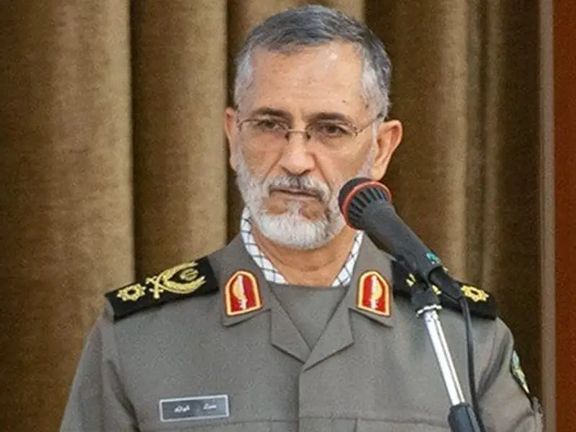
Mohammad Shirazi, the head of Ali Khamenei's military office, lauded Iran's military capabilities, particularly highlighting the recent attack on Israel.

Mohammad Shirazi, the head of Ali Khamenei's military office, lauded Iran's military capabilities, particularly highlighting the recent attack on Israel.
The Supreme Leader's military chief said that Iran is "at a point where we can confidently carry out similar operations and showcase our capabilities to the world," referring to the aerial assault on Israel in April when a barrage of 350 drones, rockets and missiles was sent towards Iran's archenemy.
Around 99 percent of the barrage was intercepted by Israel and a US-led coalition, though it continues to be a point of pride for Iran.
Shirazi further boasted, "We have reached a stage where major powers are extending their hands to us to meet their needs." While he did not specify which major powers he was referring to, his comments allude to Iran’s provision of drones to Russia in its ongoing war against Ukraine, as well as reports of supplying ballistic missiles.
Iran continues to back Yemen's Houthis which are currently blockading the Red Sea region and attacking commercial shipping, in allegiance with Iran-backed Hamas in Gaza. They say the blockade aims to force Israel into a ceasefire amid the longest Gaza war in history.
Meanwhile, Iran's largest proxy, Hezbollah in Lebanon, continues to attack Israel in support of Hamas. Iran's proxies in Syria and Iraq have also send projectiles towards the Jewish state in addition to targeting US facilities and personal in the region following its support of Israel's right to defend itself after Hamas's October 7 attack on Israel.
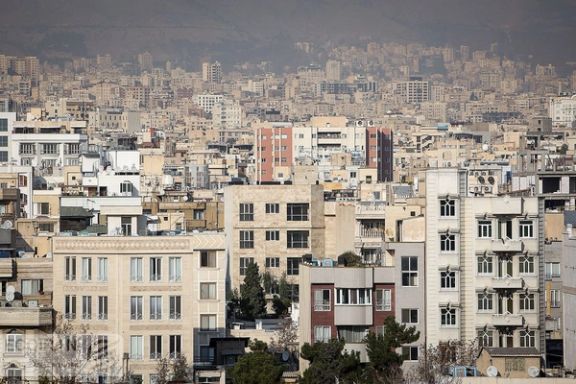
Ordinary Iranians are now facing a century-long wait to own a home amid skyrocketing prices as the average price in the capital reached about 860 million rials per square meter (approximately $1475) in June.
With working class Iranians making around $200 per month, local media estimate that it would take more than a century or longer for a wage earner to afford to buy the smallest residential unit.
Etemad newspaper wrote that based on the latest official statistics published by the Central Bank this figure has increased by more than 40 million rials per square meter (about $68) in the past two months.
The Central Bank report highlights that in June, a large portion of the housing demand has shifted towards areas with old and dilapidated structures. The developers have undertaken extensive construction in these areas, and now newly built "small-sized" houses have been able to attract some of the demand in the busiest areas of Tehran.
This trend also underscores the measures Iranians are taking to safeguard their savings against runaway inflation as real estate in Iran is a major hedge against inflation to protect savings.
While annual inflation hovers around 50%, the minimum wage for the current year has been set at 110 million rials (about $190), making it nearly impossible for many to make ends meet.
With such an income, the prospect of owning a home has become an impossible dream for many. Majid Goudarzi, a housing expert, told Tejarat News in February that “the waiting period for owning a home has now exceeded a hundred years.”
Etemad newspaper also cited a report by the Parliament Research Center in May, stating that the waiting time for the first decile of society to own a home has exceeded 123 years. This statistic highlights the housing crisis exacerbated by the government's economic mismanagement, leaving ordinary Iranians struggling to protect their savings and secure basic necessities.
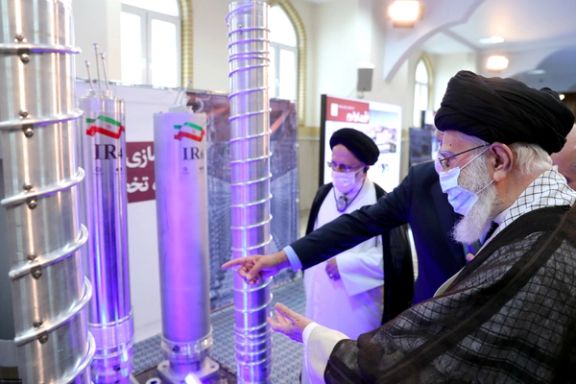
With a new president nearly in office in Tehran, there is much speculation about the direction of the new Iranian government's foreign policy.
Supreme Leader Ali Khamenei, who is widely believed to have the final say on foreign policy and other matters in Iran, has assured domestic and foreign audiences that no change is likely to take place in Iran's foreign policy with the change of president. However, the specter of Trump’s re-election is not a pleasant prospect for Khamenei and the veneer of a more “moderate” government might be one of the few effective tools he can employ to deflect more sanctions and pressures.
Nonetheless, to respond to the demands of the nation whose patience is running thin in the face of serious and long-standing economic problems, the new president has vowed to do whatever in his power to improve the country's relations with the outside world in a bid to have the paralyzing US and other international sanctions on Iran lifted.
The most severe sanctions on Iran were imposed following the 2018 US withdrawal from the JCPOA nuclear deal. These sanctions have significantly impacted Iran's oil sales and international banking. As a result, Tehran's ability to sell oil on international markets has been restricted, and it faces challenges in repatriating the proceeds, having to sell the oil at discounted prices almost exclusively to China.
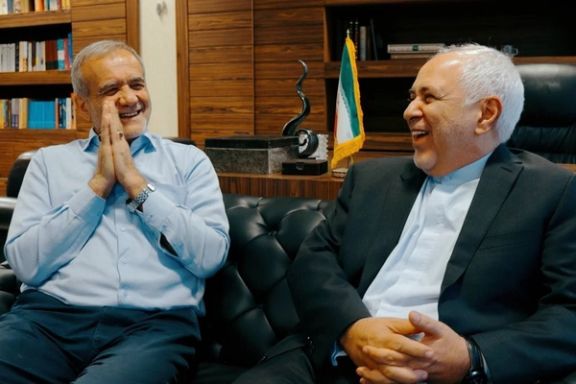
It remains unclear who will be the country's new foreign minister. Traditionally, however, Iran’s so-called moderate governments have relied on disagreements between the United States and Europe, leveraging divisions to weaken a united front against the Islamic Republic’s nuclear program and its regional interventions.
Some of the latest reports from Tehran indicate that the new government is keen to follow an approach of less tensions with West. For instance, a report in proreform Fararu website says that Iran's new government, which has not been officially formed yet, is likely to review the country's domestic and foreign policies.
However, this does not seem to be so easy, as the new President Masoud Pezeshkian's fundamentalist rival Saeed Jalili has threatened that “revolutionary forces” will not allow the government to make any compromise on ideological values.
Fararu reminded that hardliners who oppose better ties with the West have lost the election, but they have not lost political power. This serious challenge, according to the website will affect every decision to be made by the new government.
The new government will inevitably face several challenges, including securing approval for its cabinet ministers from the hardliner-dominated parliament. Some observers note that Pezeshkian has friendly ties with Majles Speaker Mohammad Bagher Ghalibaf. However, the key question is whether Ghalibaf can influence the hardliners in parliament. The answer to this will determine how easy or difficult it will be for Pezeshkian's cabinet ministers to win a vote of confidence from the Majles.
Putting foreign policy on the right track is the next challenge. The unknown factor is Supreme Leader Ali Khamenei’s plan. Does he want a meaningful change or just a façade of a “reformist” government? Then comes Pezeshkian’s task of dealing with hardliners if he ends up trying to make any concessions to the United States.
The next challenge will be striking a balance between relations with and dependency on the East and the West. Radicals in Iran refuse to accept that even China and Russia must engage with the United States and Europe as both trade partners and political rivals. People like Jalili have often been more anti-West than even Russia and China.
Leaving behind these challenges is not easy considering the weight and might of hardliners' media fleet led by the state radio and television and the backing of the Revolutionary Guard.
However, Pezeshkian may have a counterbalance that could silence the hardliners: potential support from Khamenei. Iranians will see within a few months if this backing materializes. Even if it does, Pezeshkian might abandon his promise to end the crackdown on women who defy the compulsory hijab. This is an area where Khamenei is likely to allow the radicals free rein, assuring them that they are not entirely marginalized.
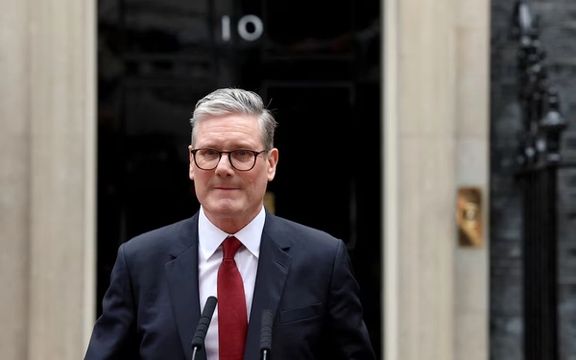
US President Joe Biden will host Britain's new Prime Minister, Keir Starmer, at the White House on Wednesday, focusing on countering Iran's escalating global threats.
Key issues on the agenda include the conflicts in Ukraine and the Israel-Gaza war, with a critical focus on Iran's nuclear ambitions and destabilizing activities. Tehran's clandestine actions and refusal to fully cooperate with the International Atomic Energy Agency (IAEA) have fueled suspicions of its intent to develop nuclear weapons, potentially sparking a regional arms race.
Additionally, Iran's Houthi rebels in Yemen continues to attack commercial shipping in the Red Sea region and Saudi Arabian oil infrastructure, threatening global energy supplies and trade routes.
With the victory of Labor party in the UK, its politicians have called for tough action against the Islamic Revolutionary Guard Corps (IRGC), including its proscription. The cross-party interest in Iran over the past two years across both Houses of Parliament has been unprecedented.
Recently, over 500 MPs and Lords urged the government to proscribe the IRGC. The Labor manifesto highlights "assassination plots by the IRGC" as part of rising threats in the UK from hostile states, pledging to adapt counter-terrorism measures for state-based threats.
This includes assassination and kidnap attempts on Iran International staff, with the UK's intelligence agency, MI5, calling Iran one of the country's biggest foreign threats on its soil.
Both the new Home Secretary and Foreign Secretary previously urged amendments to the UK’s Terrorism Act 2000 to cover hostile state actors offering hope of proscription under the new government.
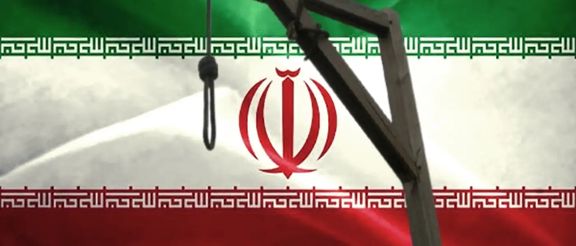
Political prisoners across nine Iranian prisons have joined the "No to Execution Tuesdays" campaign, condemning the death sentence of labor activist Sharifeh Mohammadi as "shameless and disgraceful."
The movement calls for nationwide support to halt the "execution machine" of the Islamic Republic. On Tuesday, the prisoners will further their protest with a hunger strike against executions. Hundreds of prisoners have been executed this year.
A United Front Against Repression
The protesting prisoners, confined in Evin, Ghezel Hesar, Karaj Central, Khorramabad, Khoy, Naqadeh, Saqqez, Mashhad, and Tabriz prisons, issued a statement on Monday, marking the twenty-fourth week of their Tuesday hunger strikes. They warned of increasing executions in the coming weeks and months, following the recent presidential election.
"The repressive apparatus of the Islamic Republic," the statement reads, "reduced executions to the maximum extent possible before the electoral show. However, it will now accelerate the issuance and execution of death sentences and will suppress the families of the victims more than before."
Escalating Human Rights Violations
The cases of Sharifeh Mohammadi and the arrest of Rana Kourkour, the sister of condemned protester Mojahed Kourkour, exemplify the government's tactics. These incidents signify an escalation in human rights violations, as authorities continue to disregard the right to life with impunity.
The hunger strike campaign began on January 29 and 30 in response to the executions of Vafa Azarbar, Mohammad Faramarzi, Pejman Fatehi, and Mohsen Mazloum. Initially spearheaded by inmates in Ghezel Hesar Karaj prison, the movement quickly spread, with prisoners from other facilities joining the cause. Over the past year, Ghezel Hesar jail has become the largest center for executions in the country.
A Defiant Stand
The striking prisoners noted the rejection of the recent elections by the majority of Iranian voters. They emphasized, "Reviewing the behavior of the government's repressive apparatus in recent years has shown that whenever there has been a grand display of the majority of the Iranian people against the ruling minority, the government's repressive machine has become more active. To instill fear and intimidate the people to prevent uprisings and political and social protests against tyranny, it has made the most use of executions."
This stance underscores the prisoners' belief that the fight against executions will only be successful through "solidarity, collective and widespread activism." They argue that no one can fully comprehend the depth of the pain and suffering of those at risk of execution as well as the prisoners themselves. They have called on prisoners nationwide to join the "campaign against executions."
Alarming Statistics and Global Attention
On July 3, the Iran Human Rights Organization reported 249 executions in the previous six months, highlighting a surge in the use of the death penalty. The increase is particularly alarming in the wake of the presidential election, as noted by Mahmood Amiry-Moghaddam, the director of the organization. He urged both the international community and the Iranian public to prepare for a potential wave of executions and to respond appropriately.
Amnesty International's annual report on the death penalty, released on May 29, highlighted Iran's rise in executions, revealing that nearly 75% of all recorded executions worldwide last year took place in Iran. According to Amnesty, the Iranian government has intensified its use of the death penalty following the Mahsa movement, aiming to "instill fear among the people and tighten its grip on power."
A Call for Action
The "No to Execution Tuesdays" campaign is not just a protest but a call for justice and human rights. It serves as a reminder of the reality faced by those who speak out against tyranny. As the prisoners continue their hunger strike, their plea for solidarity and activism resonates beyond prison walls, calling for global attention and action to end the cycle of repression and execution in Iran.
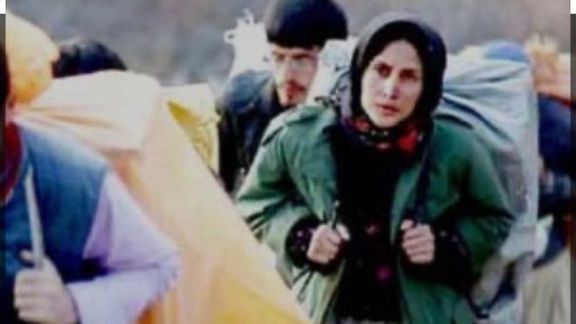
Human rights organizations have documented an increase in deadly shootings by Iran’s security forces targeting Kurdish border couriers transporting goods into Iraq, who are trying to make money to survive.
In 2023, Iran shot at 507 Kurdish people carrying goods from Iraq, and 44 of them were killed, according to human rights organization United for Iran, and since the start of this year 111 Kurds have been shot at the border for that same reason.
The Kurdish border couriers, known in Kurdish and Farsi as Kolbars, have limited access to justice, said Mahmood Amiry-Moghaddam, the director of Norway-based Iran Human rights.
"When the guards see them, they shoot at them. We hear about people who have been killed, but there are also people who have lost their limbs. They get paralyzed because of spinal cord injury,” said Amiry-Moghaddam.
Many of them are boys as young as 13, but others are highly educated men and women, and some as old as 77 years of age, who rely on carrying a heavy load of goods through dangerous, mountainous terrain as a means of survival, said Shaghayegh Norouzi from United for Iran.
“You can find doctors that they are just finished their education and they came back from Tehran and they cannot work in Kurdistan,” Norouzi told Iran International.
The Kolbars typically bypass customs to earn payment based on weight and the type of good they are transporting. They often carry loads between 55 and 110 pounds through mountainous terrain for upwards of 10 kilometres, according to reports.
Items are up for resale once it makes its way through border with goods ranging from tea, electronics, textiles, beauty products, and cigarettes. Alcohol is usually avoided as it involves harsher punishment.
Ethnic pressures
Taimoor Aliassi, the Executive Director and UN Representative of the Kurdistan Human Rights-Geneva (KMMK-G) called the shootings “extrajudicial executions” that reflect a “systemic” targeting of one Iran’s most marginalized ethnic groups.
“People have a right to food, right to work, a right to health, right to life,” said Aliassi.
He told Iran International the shootings of Kolbars has been happening for two decades and poverty is the main force driving them to this work.
According to official figures around 20 million landmines have been planted in the Kurdish region of Iran since the war with Iraq in the 1980s, which has made the land unsuitable for farming and created lethal conditions to walk through, said Aliassi.
"We have a lot of people living in the area who cannot work on their land. And then, there's no invest investment, and development projects in the region” he added.
Human Rights Watch (HRW) published a report on the increase in Iran’s security forces shooting Kolbars. HRW interviewed 13 Kurdish border couriers between October 2021 and April 2024, who survived and or witnessed the shootings.
Witnesses told HRW that Iran’s FARAJA Border Guard force and the Islamic Revolutionary Guard Corps (IRGC) carried out the attacks on border couriers.
According to the Monday’s report, six people told the human rights group that Iranian security forces aimed at them and shot them, and that they had seen others shot. Two others told them that Iranian security forces shot and killed their relatives who worked as border couriers. One lost a leg after stepping on a landmine.
HRW reviewed medical records and court documents.
A security issue
HRW said in its repot that Iran’s deceased president who died May 19 in a helicopter crash, Ebrahim Raisi, suggested to Kurdish communities to consider regulating Kurdish border couriers work, yet officials in Iran often deem it a security issue.
Kurdish political prisoner, Mohiyedin Ebrahimi was a Kolbar who was executed in Iran on March 17 2023 on security charges. He was arrested in 2017 after being caught carrying alcohol through the border.
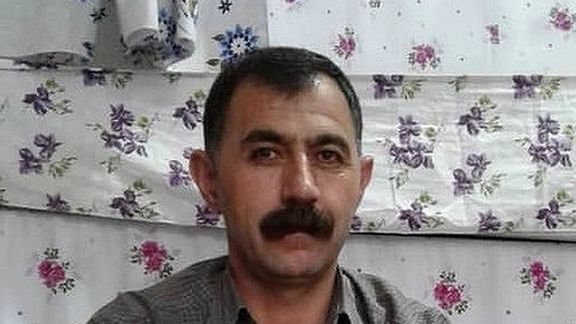
"I support twelve people in my family in Oshnavieh and have been working as a kolbar (human mules who carry goods across border) for several years,” he wrote in a letter published on Iran Human Rights website.
“On 17 November 2017, I was crossing the border from the Kurdistan region in Iraq with two horses and four carts in the dark of the night. Several other people were walking a few hundred meters ahead of me when border forces started shooting at them and they started running. The border forces shot at me as well and hit me on the leg, causing great injury. Two horses and four cartons of alcoholic beer were discovered and confiscated from me and I had to be transferred to the hospital,” he wrote in the letter.
He was officially sentenced to death on charges of baghy (armed rebellion) through membership of the Kurdistan Democratic Party of Iran.
Amiry-Moghaddam of Iran human rights cited another similar case.
On June 9, 2024, Edris Ali, also a Kurdish Kolbar was sentenced to death on “trumped up” charges of “espionage for Israel” said Amiry-Moghaddam based on confessions “extracted under torture.”
He said “his only crime was to smuggle alcoholic drinks as a Kolbar.”
For 10 dollars
Amiry-Moghaddam said Tehran is also targeting people carrying goods from Baluchistan, and that the targeting of ethnic minorities like Kurds and Baloch is a means of controlling and persecuting them.
“It’s indicative of a regime that doesn't value human lives and wants to create fear,” he said.
Aliassi of KMMK-G said in addition to gender and religious apartheid, Iran is also committing ethnic apartheid.
Aliassi said between 84 to 160 thousand people do work as a Kolbar on a daily basis, citing Iranian data.
"10 dollars" is what Kurdish border couriers get for transporting a heavy load through snow and cold weather, with the possibility of getting killed, injured or jailed, said Aliassi.